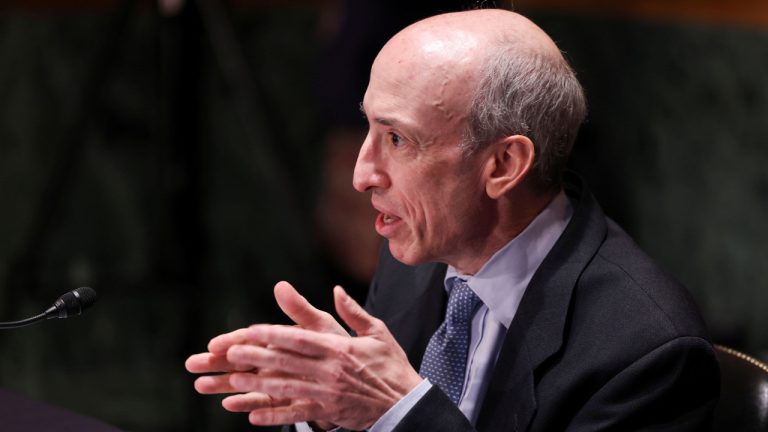
Some DAO members joked about the situation while others believed there may be an ulterior motive at play.
BarnBridge DAO members have been told to pause “all work” related to the project after a reported probe by the United States Securities and Exchange Commission (SEC).
In a July 6 post to the platform’s Discord channel, Douglas Park, a lawyer for the decentralized autonomous organization revealed the news to members.
“I am letting you know that the Securities and Exchange Commission is investigating BarnBridge DAO and individuals associated with the DAO,” Park said.
— BarnBridge (@Barn_Bridge) July 7, 2023
In order to “reduce potential further legal liability,” Park suggested “all work” on BarnBridge-related products should stop — including the closure of liquidity pools — and that individuals should not receive compensation for work flowing from the investment efforts of the DAO.
Co-founder Tyler Ward, presumably dubbed “Lord Tyler” on Discord, confirmed Park’s message was true on BarnBridge’s Discord shortly after.
Park and Ward didn’t explain why the SEC launched a probe into BarnBridge DAO. Park however explained that because the investigation is “ongoing” and “non-public,” only limited information can be shared.
Between June 30 and July 3, 100% of BarnBridge (BOND) token holders — voted on a proposal to retain the law firm Park & Dibadj LLP — of which Park is the managing partner — as legal counsel for the DAO “for various legal work.”
213,000 votes were cast and 201,000, or 94.3%, of them came from the wallet “barnbridge.eth.”

The timing and subject of the proposal may suggest the SEC launched an investigation into BarnBridge DAO before June 30.
Some DAO members have raised suspicions over the announcement, however.
One member of the Discord asked for supporting evidence of the SEC’s investigation and implied BarnBridge’s founders may be using it as an excuse to facilitate an “exit strategy” to potentially defraud investors.
Ward refuted the claim stating it would be the “worst thought-out rug attempt in history.”
Other members took the news more lightheartedly with one saying it’s “time to move to Europe” — suggesting DAO members could hide from the SEC.
Another jokingly stated that anyone who interacted with BarnBridge would be “shot” by SEC chair Gary Gensler “on live TV” — alluding to his tough stance on crypto.

Related: This little-known DeFi crypto token has rallied over 800% in a month
BarnBridge is a cross-platform risk management DeFi protocol that attempts to tackle inflation risk and interest rate volatility.
Since the news emerged, the price of its native token BOND has fallen 1.9% to $3.12, according to CoinGecko. The token is down 98.3% since its all-time high price of $185.7 on Oct. 27, 2020, and currently has a market cap of $29 million.
Early last month, the SEC filed lawsuits against two of the industry’s largest exchanges Binance and Coinbase, alleging they offered unregistered securities.
The reported investigation into BarnBridge, a small to mid-sized DAO, could suggest the securities regulator isn’t just looking to target the crypto space's largest organizations.
Cointelegraph contacted the SEC for comment but did not receive an immediate response.
Magazine: AI Eye: ‘Biggest ever’ leap in AI, cool new tools, AIs are the real DAOs











